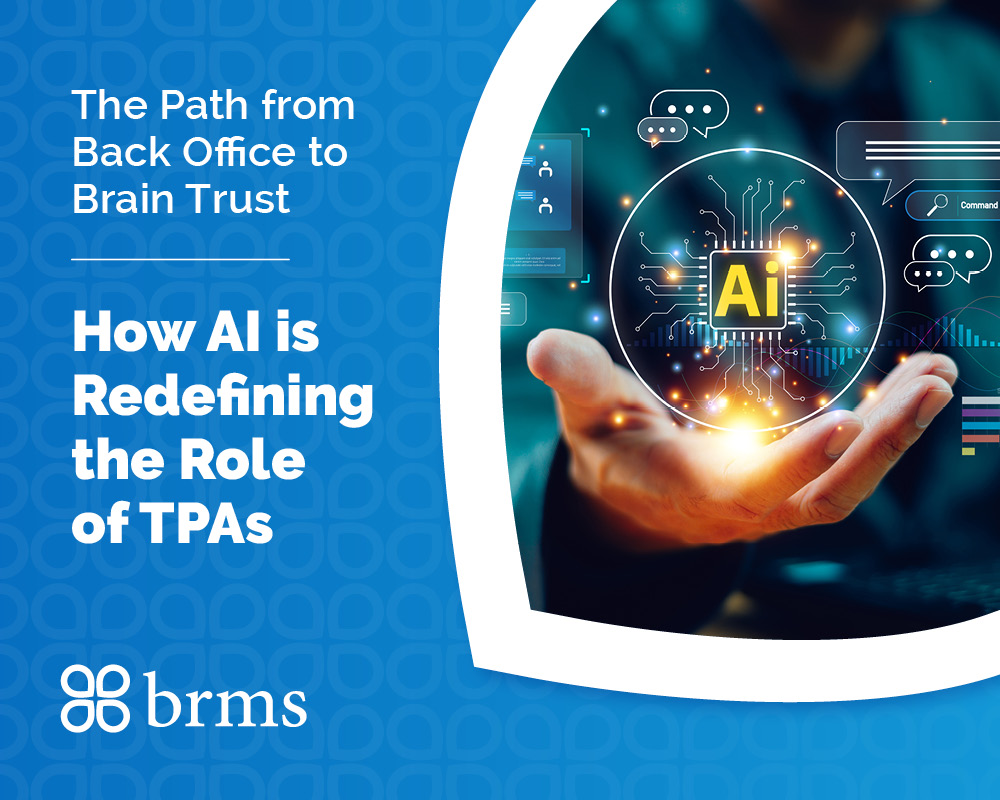
From Back Office to Brain Trust
For the most part, third-party administrators (TPAs) operate behind the scenes. From processing claims and enhancing benefits, to supporting health plan renewals for employers and brokers, TPAs serve more as administrative engines than figureheads. But with the rise of artificial intelligence, that seems to be changing. TPAs are now being pushed to the forefront of healthcare spending strategy for employers because of the evolving tools that we’re seeing in the marketplace.
So where does that road lead us?
The Potential for Plan Design
When we look at the benefits AI brings in regard to TPAs, one of the biggest opportunities to consider lies in plan design. Instead of relying on generalized templates or squinting at last year’s performance, AI can simulate the financial and clinical impact of multiple benefit scenarios in real time, potentially giving a far stronger viewpoint for making decisions.1
Backed by this information, AI could be used to help tailor benefit plans based on the unique demographics and health risks of a specific workforce.1 A tech company with a younger workforce based in the city will likely have considerably different needs than a manufacturing company in a rural region. AI tools can give the ability to detect those nuances and provide guidance for customized plans that meet those unique needs.
Additionally, AI could support TPAs through the use of predictive modeling to anticipate challenges and circumstances surrounding specific groups. Instead of just adapting benefit plans after problems arise, AI could assist TPAs in preparing and adjusting for these issues before they happen, allowing for improved cost savings and employee well-being.2
Elevating Patient & Member Care
Speaking of employee well-being, AI also has the potential to help TPAs redefine how employers support plan members directly. Just look at the improvements made in chatbots and virtual assistants, now available 24/7. Instead of working from simple FAQs, these tools are being trained on specific plan documents, helping members understand treatment options, navigate provider networks, and receive support for health issues and plan guidance.1
Behind the scenes, predictive analytics can identify members at risk for high-cost incidents like hospitalization or disease. With that information in mind, care managers can proactively reach out, assist in coordinating care, and ensure timely interventions.
The Human-AI Balance
With that in mind, when it comes to big question of whether machines replace the human touch, we’re confident that the answer is no. AI seems poised to play the role of co-pilot, rather than a replacement. Automated tools can handle repetitive tasks and analyze vast datasets, allowing humans to focus on high-value, empathetic interactions. Striking the balance between leveraging the advancements in technology and maintaining an interpersonal approach appears to be the key to moving forward in the future.
A New Era of TPA Value
AI is reshaping just about every part of the benefits industry, and TPAs should heed that movement. The important thing to keep in mind is the role each part can play, rather than losing sight of the end goal. While TPAs might have been seen as the quiet administrators of yesterday, we now see them taking a vital role in tomorrow’s health plans—delivering efficiency, intelligence, and humanity.
As healthcare benefits grow more complex and costly, the potential advantages AI are poised to give TPAs increased time to focus on bringing in the human element that employers and members want. It’s up to each company to determine whether AI can make that difference or not.
